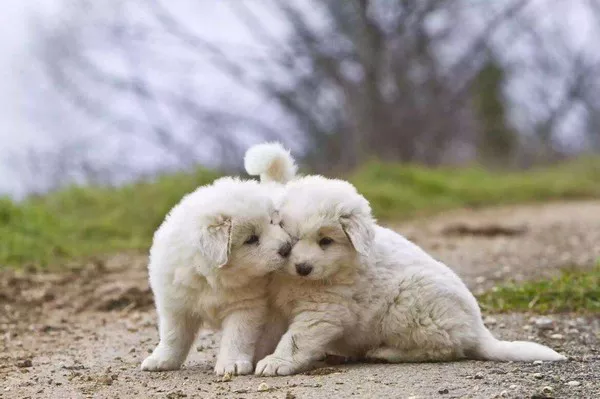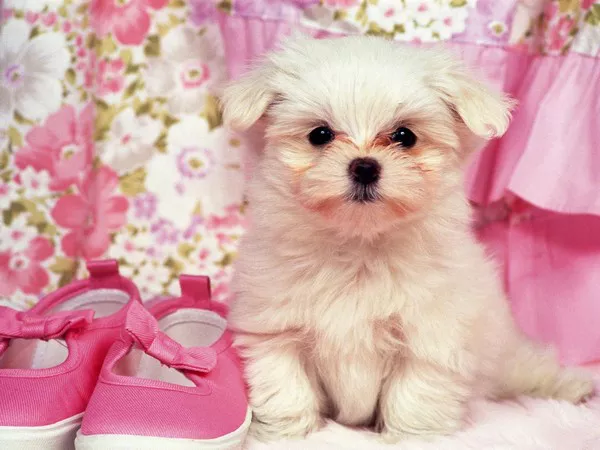The Chow Chow is a unique and fascinating breed known for its distinctive appearance and rich history. With their lion-like mane, blue-black tongues, and reserved demeanor, Chow Chows have captured the interest of dog enthusiasts and potential pet owners alike. However, questions about their temperament, particularly regarding aggression, often arise. This article will delve into the characteristics and living habits of the Chow Chow to provide a comprehensive understanding of whether Chow Chow is truly aggressive.
Breed Characteristics and Historical Background
The Chow Chow is one of the oldest and most distinctive dog breeds in the world, originating from China. Known for their spitz-like features, these dogs have been depicted in ancient Chinese art and literature, showcasing their long history as companion animals.
Physical Characteristics
Chow Chows are easily recognizable due to their unique physical features:
Coat: One of the most notable characteristics of the Chow Chow is its dense, double coat. This can be either smooth or rough, with the rough coat being longer and more lion-like in appearance. Their coat requires regular grooming to prevent matting and maintain their health.
Color: Chow Chows come in a variety of colors, including red, black, blue, cinnamon, and cream. Each color variation is equally striking, but all Chows share the signature blue-black tongue.
Build: The breed has a sturdy and compact build, with a broad head, deep-set eyes, and a distinctive, straight-backed stance. Their overall appearance contributes to their regal and aloof demeanor.
Historical Role and Origins
Chow Chows have been part of Chinese history for over 2,000 years. Originally bred as hunting and guard dogs, they were highly valued by Chinese nobility and monks. Their role as protectors of property and livestock contributed to their reserved nature and independent attitude.
Temperament and Behavioral Traits
Understanding the temperament of Chow Chows is crucial in addressing concerns about aggression. This breed has a reputation for being aloof and independent, but this does not necessarily equate to aggression.
Temperament
Chow Chows are known for their:
Independence: Unlike many breeds that thrive on constant interaction and attention, Chow Chows are more self-reliant. They are often content to be on their own, making them less demanding of their owners.
Reserved Nature: Chows can be aloof, particularly with strangers. They are not typically outgoing and may take time to warm up to new people or situations. This reserved nature can sometimes be misinterpreted as aggression.
Loyalty: While they may be standoffish with strangers, Chow Chows are known for their loyalty to their families. They form strong bonds with their owners and can be very protective of their home and loved ones.
Socialization and Training
Proper socialization and training are crucial for any dog, including the Chow Chow. Due to their independent nature, they may require consistent and firm training methods. Early socialization with various people, animals, and environments can help prevent potential behavioral issues.
Socialization: Introducing a Chow Chow to different experiences, people, and other animals from a young age can help mitigate their tendency to be reserved or territorial. This helps them become well-adjusted and less likely to exhibit fearful or defensive behaviors.
Training: Chow Chows respond best to positive reinforcement techniques. Harsh training methods can be counterproductive and may lead to behavioral issues. Consistency, patience, and reward-based training are key to a well-behaved Chow Chow.
Aggression in Chow Chows:
Aggression in Chow Chows, as with any breed, is often a result of various factors including genetics, environment, and upbringing. It’s essential to understand these factors to address and mitigate aggression effectively.
Genetics and Early Socialization
Genetics play a role in the temperament of any dog breed, including the Chow Chow. While the breed itself is not inherently aggressive, individual dogs may display aggression due to hereditary factors combined with their early life experiences.
Early Socialization: Puppies that are not exposed to diverse environments, people, and other animals during their critical developmental periods may develop fear-based aggression. Proper socialization helps ensure that the Chow Chow is comfortable and confident in different situations.
Temperament Variations: Like all breeds, there can be individual differences in temperament within the Chow Chow breed. Some may be more reserved or wary of strangers, but this does not necessarily indicate aggression. Understanding these variations can help in managing and addressing any potential issues.
See Also: Why Do Chow Chows Have a Bad Reputation?
Environmental Factors and Training
The environment in which a Chow Chow is raised and trained significantly impacts its behavior.
Living Environment: Chow Chows that are not given enough mental and physical stimulation may become bored or frustrated, which can lead to behavioral issues. Ensuring that a Chow Chow has a stimulating environment and regular exercise can help prevent such issues.
Training and Handling: Consistent, positive reinforcement training is crucial. Inappropriate handling or lack of training can contribute to behavioral problems. It is important to address any signs of aggression or fear with professional guidance and appropriate training methods.
Common Misconceptions About Chow Chows
Several misconceptions about Chow Chows contribute to the perception that they are aggressive. Understanding these misconceptions can provide clarity on the breed’s true nature.
Aloofness vs Aggression
Chow Chows are often misunderstood due to their aloof and reserved demeanor. While they may not be as overtly affectionate as some other breeds, this does not mean they are aggressive. Their reserved nature is often mistaken for hostility, especially by those unfamiliar with the breed.
Protectiveness Misinterpreted
Chow Chows are protective of their families and territory, which can sometimes be misinterpreted as aggression. They may bark or act defensively if they perceive a threat to their home or loved ones. Proper training and socialization can help manage these protective instincts in a positive way.
Caring for a Chow Chow: Best Practices
Caring for a Chow Chow involves understanding their unique needs and characteristics. Proper care can help ensure that they are well-adjusted and happy pets.
Grooming Needs
Chow Chows require regular grooming to maintain their coat and overall health. Their thick fur can easily become matted if not properly cared for. Regular brushing, along with periodic professional grooming, is essential.
Exercise and Mental Stimulation
While Chow Chows are not overly energetic, they still require regular exercise and mental stimulation. Daily walks and playtime are important for their physical and mental well-being. Engaging them in activities that challenge their minds can also help prevent boredom and associated behavioral issues.
Health Considerations
Regular veterinary check-ups are important to monitor the health of a Chow Chow. The breed is prone to certain health issues, including hip dysplasia and eye problems. Maintaining a healthy diet, regular exercise, and routine veterinary care are crucial for their well-being.
Conclusion
The Chow Chow, with its unique appearance and reserved nature, is often subject to misconceptions about aggression. While the breed is not inherently aggressive, its temperament can be influenced by various factors, including genetics, socialization, and training. Understanding the breed’s characteristics, proper socialization, and effective training methods are key to ensuring a well-adjusted and non-aggressive Chow Chow.
Chow Chows are loyal, protective, and independent dogs that can make wonderful companions when their needs are properly addressed. By providing them with the right environment, socialization, and care, potential owners can enjoy the distinct qualities of this remarkable breed while fostering a positive and balanced relationship.
Related Topics:

























